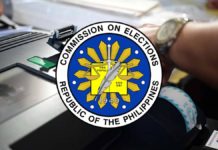
(We yield this space to the statement of the human rights watchdog Philippine UPR Watch due to its timeliness. – Ed.)
THE GOVERNMENT tried but miserably failed to convince the international community that the human rights situation in the Philippines has vastly improved. At the United Nations Human Rights Council’s fourth cycle of Universal Periodic Review in Geneva on Monday, many countries expressed concerns about human rights violations and the government’s inadequate responses to recommendations made in 2017.
Governments from at least 35 countries called on the Philippines to put a stop on extrajudicial killings and exact accountability on the perpetrators, particularly state security forces, while 38 countries called on the Philippines to protect human rights and indigenous defenders, lawyers and judges, environmentalists, and journalists. This clearly indicates that the world knows the real situation despite lies, empty rhetoric and distortion of facts by the Philippine government delegation.
The Philippine government delegation brought nothing but empty words and vague promises to the review. Its presentation did not reflect realities on the ground. As documented by the University of the Philippines’ Third World Studies Center, there have been 127 deaths connected with the drug war from July 1 to Nov. 7 this year, mostly by state security forces. Justice Secretary Jesus Crispin Remulla’s claim that President Ferdinand Marcos Jr.’s directive to only use force when necessary is either being ignored or is simply a blatant lie. Many countries during the review were justifiably skeptical of government’s claims of success of investigating perpetrators of rights violations when there have been zero final and successful convictions. What are a few investigations and dismissal of policemen in the face of thousands of deaths after all?
Romania pointedly recommended a stop to red-tagging, a criticism of Philippine mission head and Justice Secretary Remulla’s justification of the practice when he was last here last October. But Remulla was combative in denying the existence of a government red-tagging policy, alleging it was just an invented word by the Left. Does he not know that red-tagging was the subject of various UN reports and that it is already universally recognized as a dangerous practice?
Remulla was given a chance to respond to recommendations to decriminalize libel and cyber-libel. His delegation instead chose to make much of an administrative order that was issued by the previous government but that even became a red-tagging weapon against journalists and civil society actors. May we remind him that 23 journalists were killed under the Duterte regime and two have already been killed under the Marcos government?
We hope that the Marcos government acknowledges the fact that its claim of improved human rights situation is not believed. Behind polite words in which the recommendations were given by more than a hundred countries in the review, they clearly mean that the Philippines has a long way to go in ensuring the human rights is respected and upheld in the country.





